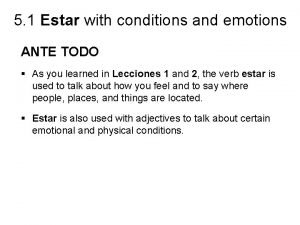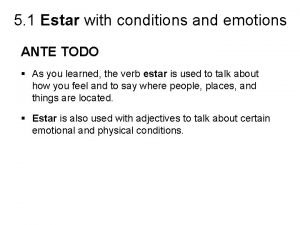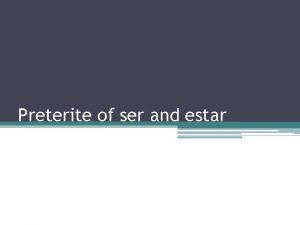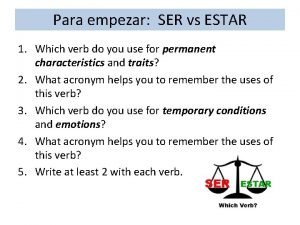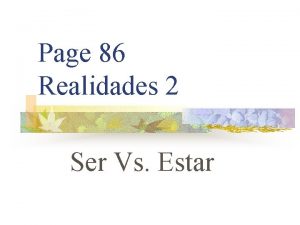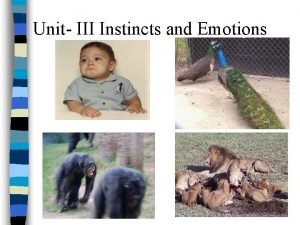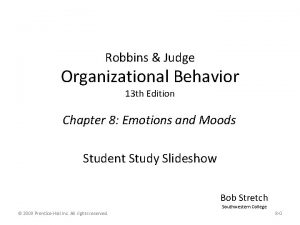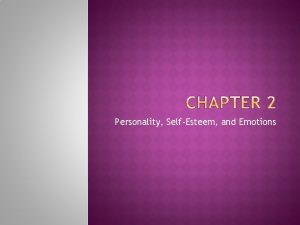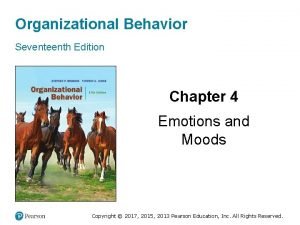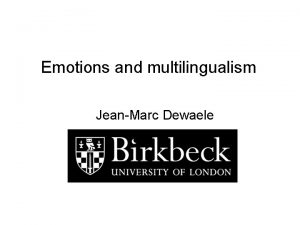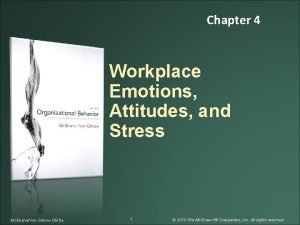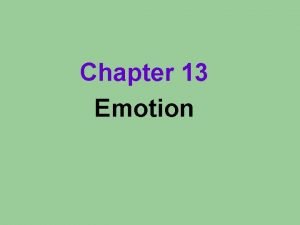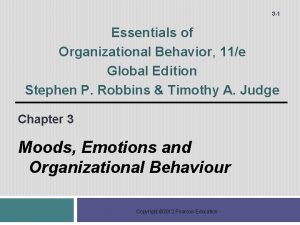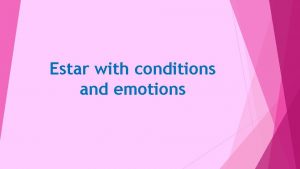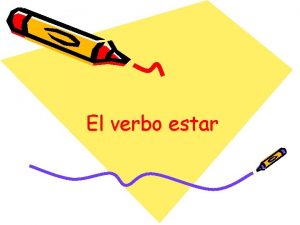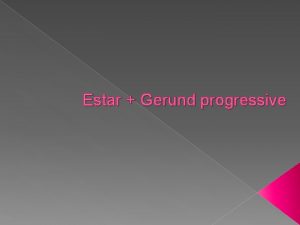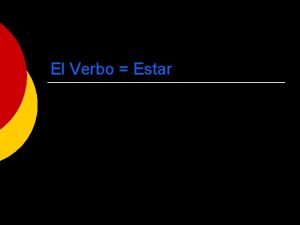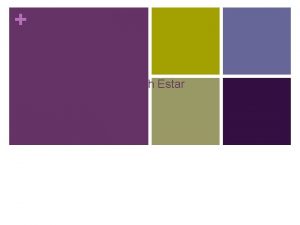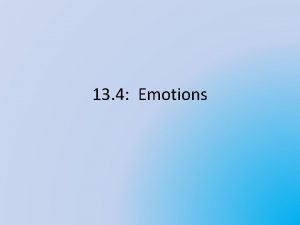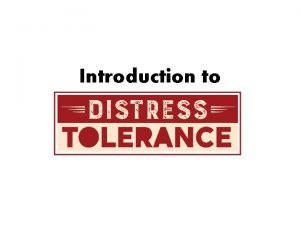ESTAR Conditions and Emotions To express conditions emotions

















- Slides: 17

ESTAR Conditions and Emotions

To express conditions, emotions or tell where you are… use ESTAR Yo Estoy Nosotros Estamos Tú Estás Vosotros Estáis Ellos Ellas Ustedes Están Él Ella Usted Está

EXPRESSIONS Estar de buen humor. Estar de mal humor. Está de buen humor.

ADJECTIVES TO DESCRIBE CONDITIONS OR EMOTIONS abierto/a avergonzado/a aburrido/a Están alegres. alegre

CONDITIONS AND EMOTIONS cerrado/a cansado/a confundido/a cómodo/a contento/a

CONDITIONS AND EMOTIONS desordenado/a enamorado/a de enojado/a equivocado/a

CONDITIONS AND EMOTIONS listo/a feliz limpio/a nervioso/a ocupado/a

CONDITIONS AND EMOTIONS preocupado/a por ordenado/a seguro/a triste sucio/a

TODOS LOS ADJETIVOS abierto/a aburrido/a alegre avergonzado/a cansado/a cerrado/a comodo/a confundido/a contento /a desordenado/a enamorado/a enojado/a equivocado/a open bored happy; joyful embarrassed tired closed comfortable confused content/happy messy, disorderly in love, enamored angry wrong feliz limpio/a listo/a nervioso/a ocupado/a ordenado preocupado/a por seguro/a sucio/a triste happy clean ready nervous busy orderly, neat worried sure dirty sad

THE PRESENT PROGRESSIVE In English the present progressive describes actions that are happening now, or in progress. The tense is formed by the present tense of “to be” and a verb ending in –ing. I am swimming. You are camping.

EL PRESENTE PROGRESIVO In Spanish we form the present progressive by… Form of estar + Present Participle Estoy pescando. Estamos hablando.

THE PRESENT PARTICIPLE The present participle of –ar, -er, -ir verbs are formed by… Infinitive hablar comer escribir Stem hablcomescrib- Ending -ando -iendo Present Participle hablando comiendo escribiendo

ATENCION When the stem of an –er verb or –ir verb ends in a vowel, the present participle ends in -yendo leer oir traer leotra- -yendo leyendo oyendo trayendo

ATENCION Ir, poder and venir are irregular present participles. There will also be others to learn later. ir yendo poder pudiendo venir viniendo

-IR STEM-CHANGING VERBS e: ie in the present tense preferir e: i in the present tense conseguir o: ue in the present tense dormir e: i in the present participle prefiriendo e: i in the present participle consiguiendo o: u in the present participle durmiendo

USE OF THE PRESENT PROGRESSIVE The present progressive is used differently in Spanish than in English. In Spanish we use the present progressive to emphasize that an action is taking place at the time it is being described. Estamos estudiando español ahora mismo. Miguel y Ana todavía están durmiendo. We are studying Spanish right now. Miguel and Ana are still sleeping. In English, we use the present progressive tense to talk about actions occurring over an extended period of time or in the future. In Spanish the present simple tense is often used instead. María estudia biología este semestre. Juan y Javier van a España mañana. Maria is studying biology this semester. Juan and Javier are going to Spain tomorrow.

VAMOS A PRACTICAR ¿Que están haciendo?
 Intentalo provide the present tense of estar
Intentalo provide the present tense of estar Estar with conditions and emotions
Estar with conditions and emotions Ser and estar acronyms
Ser and estar acronyms Ser estar preterite
Ser estar preterite Ser vs estar acronym
Ser vs estar acronym The verbs ser and estar (p. 258) answers
The verbs ser and estar (p. 258) answers The verbs ser and estar pg 86
The verbs ser and estar pg 86 Eduardo ¡hola, ceci! ¿cómo (1)
Eduardo ¡hola, ceci! ¿cómo (1) Write the instinct related to appetite emotion
Write the instinct related to appetite emotion Emotions and moods in organizational behavior
Emotions and moods in organizational behavior Personality self esteem and emotions
Personality self esteem and emotions Organizational behavior chapter 4 emotions and moods
Organizational behavior chapter 4 emotions and moods Multilingualism meaning
Multilingualism meaning Primary and secondary emotions
Primary and secondary emotions A sequence of images emotions and thoughts
A sequence of images emotions and thoughts Workplace emotions, attitudes, and stress
Workplace emotions, attitudes, and stress Eight core emotions
Eight core emotions Ob applications of emotions and moods
Ob applications of emotions and moods
